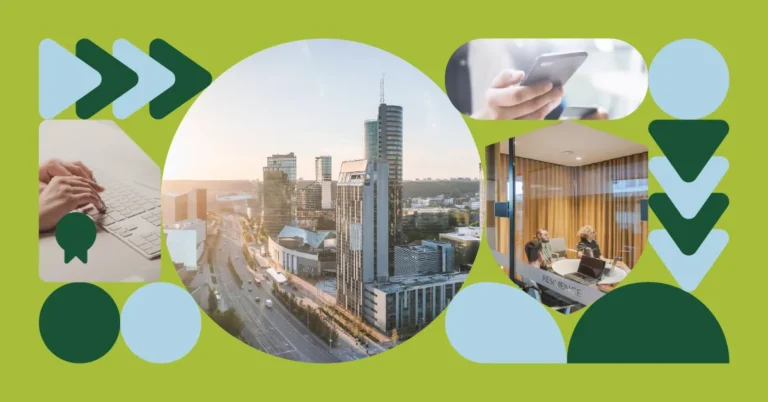2016 was another record breaking year for the foreign investment promotion agency Invest Lithuania as it attracted 36 foreign direct investment (FDI) projects to Lithuania. These projects are set to create 3,716 jobs over the next three years. By comparison, 28 foreign capital companies decided to set up operations in Lithuania in 2015, creating 2,370 jobs.
Total investments by foreign investors in physical assets such as property, industrial buildings or equipment (known as CAPEX) was up almost €10 million in 2016, rising to €135.2 million from €126 million in 2015. In the agency’s first year of operation, 2010, 11 FDI projects creating 991 jobs were attracted, with CAPEX investment at €45.8 million.
For Mantas Katinas, Managing Director of Invest Lithuania, one of the most pleasing aspects of this record breaking year was the boom in foreign investment into production in Lithuania. “This year was notable for the fact that we managed to achieve a breakthrough in attracting production investments to Lithuania,” Mr Katinas explains. “The Danish window and door manufacturer Dovista decided to establish a division in Marijampolė, implementing perhaps the largest greenfield investment project in the history of Lithuania in the process; Ryanair is expanding its aircraft maintenance base in Kaunas; and in the near future we expect to announce the arrival of another large investor, which will enhance Lithuania’s reputation internationally. Investments into production operations are a key factor in driving the growth of the economy of Lithuania’s regions,” he concludes.
The number of new jobs that will be created in the production sector as a result of these investments is 1,386, which is double the 2015 figure. And foreign investors already established in Lithuania will also be creating new positions as their operations expand significantly. 1,850 new jobs will be created in the shared services sector, with a further 480 jobs added by technology companies expanding their units in Lithuania.
Niche clusters are also developing in Lithuania’s IT sector thanks to foreign investment, as Mr Katinas points out. “Whilst fewer jobs are being created by companies developing information technology products in Lithuania, two advanced clusters are developing in the country: cybersecurity and financial technologies (FinTech). In the last year alone, plans were announced for the arrival of 3 new investors in each of these sectors. Crucially, these are industries of the future and Lithuania’s first steps in these sectors are particularly important,” Mr Katinas added.
Swedish capital companies were the biggest creators of jobs in Lithuania in 2016: over the next three years they plan to employ 1,340 specialists in new posts. German companies were second with 750 new jobs planned, whilst Danish and Finnish capital companies are set to create 300 new positions each.
The breakthrough in production investments will contribute substantially to the growth of the economy of Lithuania’s regions. In 2016, foreign direct investment projects were brought to Kaunas, Klaipėda, Panevėžys, Marijampolė, Kėdainiai and Vievis. In these cities, 99% of the capital invested will be in long-term property. The largest number of jobs created over the next three years thanks to these investments will be in Kaunas (780 jobs) and Marijampolė (330 jobs).
When calculating the annual results of its operations, Invest Lithuania only includes investment totals and planned job creation for the first three years of these investment projects. Therefore, the total amount of investment made by companies that decided to establish in Lithuania last year, and the number of positions they create, could be substantially higher in the long run. For example, the Danish company Dovista, which plans to build a window and door manufacturing plant in Marijampolė, has long-term plans to employ more than 1,000 people and to become the largest manufacturing company in the Marijampolė region.
According to Invest Lithuania’s estimates, once the projects attracted in 2016 are implemented, about €50 million per year in taxes will be added to the national budget, which is the same amount by which budget allocations for public security were increased this year.
Building on these strong results, Invest Lithuania is aiming for continued sustainable growth in FDI attraction in 2017 and beyond. To achieve this, the agency is pushing for further improvements to the country’s investment environment. These include reform of the education system in line with the future needs of the economy, the creation of favourable conditions for attracting foreign talents to Lithuania, development of the innovation ecosystem and the continued development of the infrastructure needed by business.












